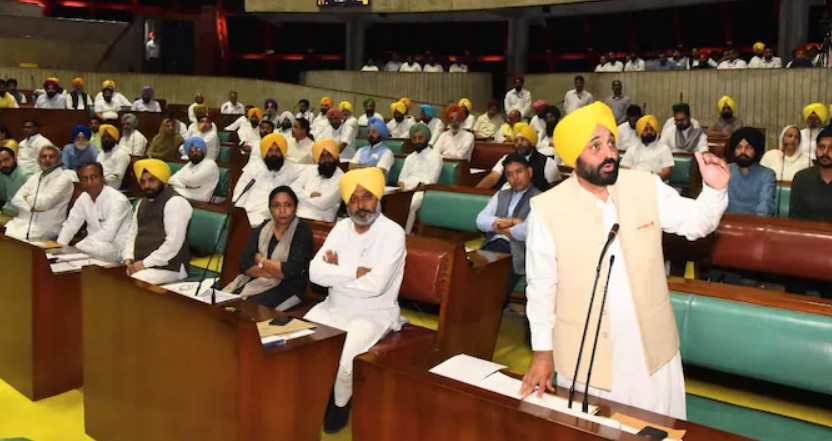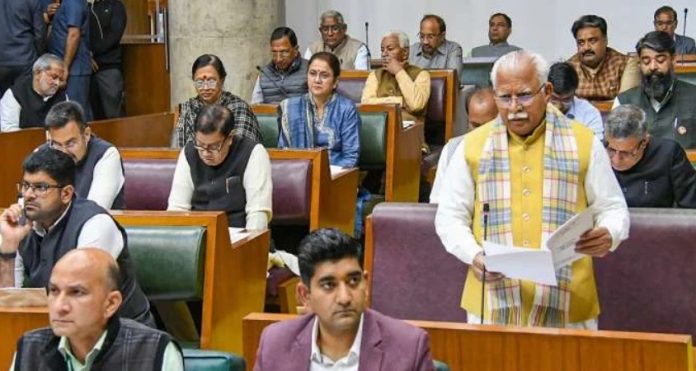The Punjab Assembly recently passed three significant Bills, marking a crucial legislative development in the state. These Bills, which cover various aspects of governance, administration, and social welfare, have sparked discussions among political leaders, legal experts, and the general public. Their passage reflects the government’s commitment to addressing key issues affecting the state, although not without opposition and debate.
The first Bill focused on enhancing governance and improving administrative efficiency in Punjab. The state government emphasized the need for modernizing various government processes to ensure transparency and better service delivery. The Bill introduced provisions that streamline bureaucratic procedures, reduce delays in decision-making, and enhance accountability within government departments. Officials hailed the legislation as a step toward making Punjab’s administration more responsive and effective. However, opposition leaders criticized certain clauses, arguing that they grant excessive power to specific authorities, which could lead to bureaucratic overreach. Some members of the Assembly raised concerns about the potential misuse of these provisions and called for additional safeguards to prevent corruption and favoritism.
The second Bill aimed at strengthening social welfare measures in Punjab. This legislation introduced several new provisions to improve access to essential services for marginalized communities. Key aspects of the Bill included financial assistance for economically weaker sections, educational scholarships for students from underprivileged backgrounds, and enhanced healthcare benefits for disadvantaged groups. The government argued that the Bill was necessary to address inequalities and uplift vulnerable sections of society. Proponents of the legislation lauded the initiative, stating that it would provide crucial support to those in need, particularly in rural areas. However, critics pointed out that while the intent behind the Bill was commendable, its implementation required robust monitoring mechanisms to prevent misuse of funds. They also questioned whether the state’s budget could sustain the financial burden of these welfare measures in the long run.
The third Bill focused on environmental conservation and sustainable development. Punjab has been grappling with severe environmental challenges, including depleting groundwater levels, rising pollution, and deforestation. This Bill introduced stringent measures to regulate industrial waste disposal, promote afforestation, and curb illegal mining activities. It also laid out provisions for stricter penalties against individuals and organizations found violating environmental laws. Environmental activists welcomed the move, asserting that the state needed urgent action to combat ecological degradation. They highlighted the significance of these measures in addressing Punjab’s ongoing water crisis and deteriorating air quality. However, some industrial representatives and business groups expressed concerns that the new regulations might impose additional compliance costs and hinder economic growth. They urged the government to consider incentives for businesses that adopt sustainable practices rather than imposing strict penalties outright.

The passage of these Bills was not without contention. During the Assembly session, opposition parties raised objections to certain provisions, demanding modifications and more detailed deliberations before final approval. Heated debates ensued, with some members alleging that the government was rushing the Bills through without adequate discussion. They argued that such important legislations required broader consultations with stakeholders, including industry leaders, social organizations, and environmental experts. Despite the opposition’s protests, the ruling party defended the urgency of the Bills, asserting that the proposed laws were essential for Punjab’s development and well-being.
Political analysts noted that the passage of these Bills was a strategic move by the government to strengthen its position ahead of upcoming elections. By focusing on governance reforms, social welfare, and environmental issues, the government aimed to address key concerns of the electorate. The ruling party sought to project itself as proactive and committed to Punjab’s progress, while the opposition accused it of using legislative measures to gain political mileage. The political discourse surrounding these Bills underscored the ongoing power struggles and differing priorities among Punjab’s leaders.
Legal experts weighed in on the implications of the new legislations. They emphasized that while the Bills contained positive elements, their success would depend on effective implementation. They cautioned that laws alone could not bring about meaningful change unless accompanied by proper execution, adequate funding, and strict enforcement. Experts also stressed the need for periodic reviews and amendments based on ground-level realities to ensure that the laws remained relevant and effective over time.
The public reaction to the passage of these Bills was mixed. Some citizens welcomed the government’s proactive approach in addressing critical issues, particularly in social welfare and environmental protection. They expressed hope that the new laws would lead to tangible improvements in their daily lives. However, others remained skeptical about the effectiveness of the measures, citing past instances where well-intentioned legislations failed due to poor implementation and lack of accountability. Many citizens called for greater transparency in how the government planned to execute the provisions of these Bills and urged continuous public engagement in the policymaking process.
The environmental Bill, in particular, resonated with activists and concerned residents who have been advocating for stronger ecological protections. Punjab has been facing a severe water crisis, with groundwater depletion reaching alarming levels. Farmers and environmentalists have long been demanding concrete measures to address this issue, and the new legislation was seen as a step in the right direction. However, they also warned that enforcement would be key, as previous environmental regulations had often been ignored or poorly implemented.
For businesses and industrial groups, the new governance and environmental regulations posed both challenges and opportunities. While some industry leaders supported the need for a more transparent and efficient administration, they worried about increased bureaucratic oversight and compliance burdens. Many urged the government to engage in dialogue with the business community to ensure that the new regulations did not stifle economic growth. Small and medium enterprises (SMEs), in particular, expressed concerns that they might struggle to comply with new environmental mandates without additional financial support or incentives.
The social welfare Bill had the most direct impact on ordinary citizens, particularly those from disadvantaged backgrounds. Beneficiaries of the new provisions, such as students receiving scholarships and families accessing healthcare benefits, expressed optimism about the potential improvements in their quality of life. However, concerns remained about whether the government had the resources to sustain these programs in the long term. Economic experts pointed out that Punjab was already facing financial challenges, and the additional expenditure on welfare schemes could strain the state budget. They suggested that the government explore alternative funding mechanisms, such as public-private partnerships, to support these initiatives sustainably.
As the new laws take effect, all eyes will be on the government’s ability to implement them effectively. The success of these Bills will be measured not just by their legal provisions but by their real-world impact on governance, social welfare, and environmental sustainability. The opposition has vowed to keep a close watch on the implementation process and hold the government accountable for delivering on its promises.
Moving forward, policymakers will need to balance economic growth with environmental sustainability, administrative efficiency with bureaucratic accountability, and social welfare with fiscal responsibility. The coming months will reveal whether these new legislations can bring about the intended positive changes or if they will face challenges in execution.
The Punjab Assembly’s passage of these three Bills represents a significant moment in the state’s legislative history. While they address pressing issues, their long-term success will depend on effective governance, public participation, and continuous evaluation. The people of Punjab will be watching closely to see whether these laws translate into meaningful progress for the state.


